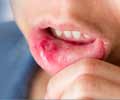Causes and Diagnosis
Poor oral hygiene is the most common cause of halitosis. However, a person may suffer from halitosis due to other conditions as well.
Halitosis or bad breath is caused by diseases affecting the mouth and sometimes nose or throat. Bacteria present in the mouth act on food particles, saliva, cells or blood in the mouth to produce halitosis. Some causes of halitosis include:-
- Poor oral hygiene: Poor oral hygiene leads to accumulation of food and plaque in the mouth. These result in inflammation of gums called gingivitis and of the tissues surrounding the teeth called peridontitis. Both gingivitis and peridontitis can cause halitosis. A particular type of gingivitis called Vincent’s disease or trench mouth causes very bad halitosis. Besides, dental caries also lead to oral malodor.
- Dry mouth or Xerostomia: Dryness of mouth could occur in various conditions like Sjogren’s syndrome.
- Mouth ulcers: Bacteria can grow on the tissue debris and blood of mouth ulcers and cause bad breath.
- Dentures: Dentures may increase tongue coat deposits and lead to halitosis.
- Morning halitosis: Halitosis that occurs when one wakes up from sleep is called “morning halitosis.” This could occur due to a nose or throat infection or due to hot, dry surroundings.
- Food and addictions: Foods like garlic, onions and spices result in transient bad breath. Tobacco, alcohol and betel nut could also cause halitosis.
- Respiratory tract infections: Infections of the upper respiratory tract like rhinitis, sinusitis and tonsillitis as well as lung infections like bronchiectasis can result in halitosis.
- Cancer: Cancer of the mouth as well as of the lungs can cause in bad breath.
- Gastro-esophageal reflux disease: In gastroesophageal reflux disease, the stomach contents move back into the esophagus and damage the lining of the esophagus. Bacteria grow on these damaged portions and cause halitosis.
- Other conditions: Conditions like fever, diabetes, liver and kidney failure result in halitosis.
- Fish Odor Syndrome: Fish Odor Syndrome or Trimethylaminuria is a genetic disorder where the patient’s mouth and body smell of rotten fish.
Diagnosis
Halitosis is diagnosed using the organoleptic procedure. Improving oral hygiene often helps to cure the condition.
Halitosis is diagnosed by the presence of malodor or bad breath. Smelling the air from the mouth and nose separately and comparing the intensity of the two odors using the organoleptic procedure helps to diagnose the origin of the problem. Odor from both the mouth as well as the nose of similar intensity indicates that the problem is not a local one.
Though some tests like gas chromatography (GC) and sulphide monitoring are available to test what the malodor is due to, they are expensive and usually not practical to be carried out.






